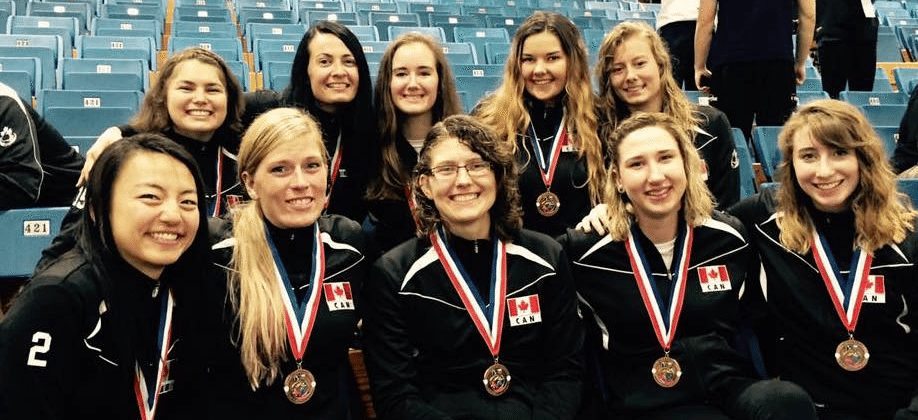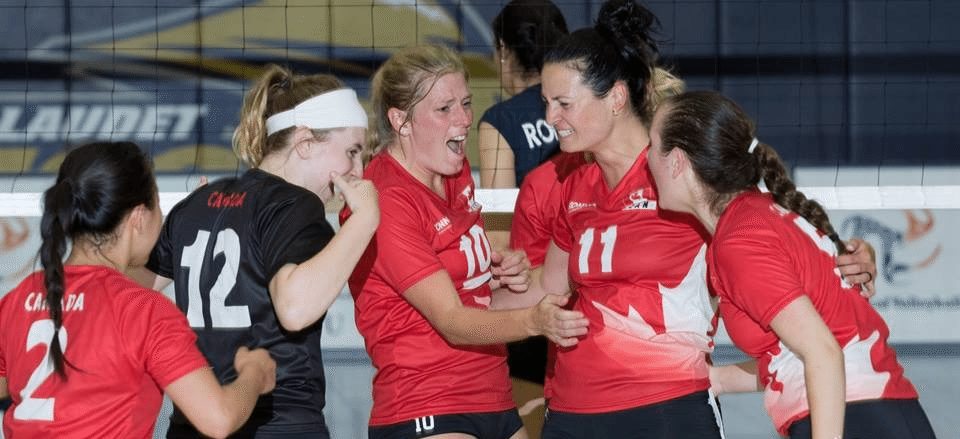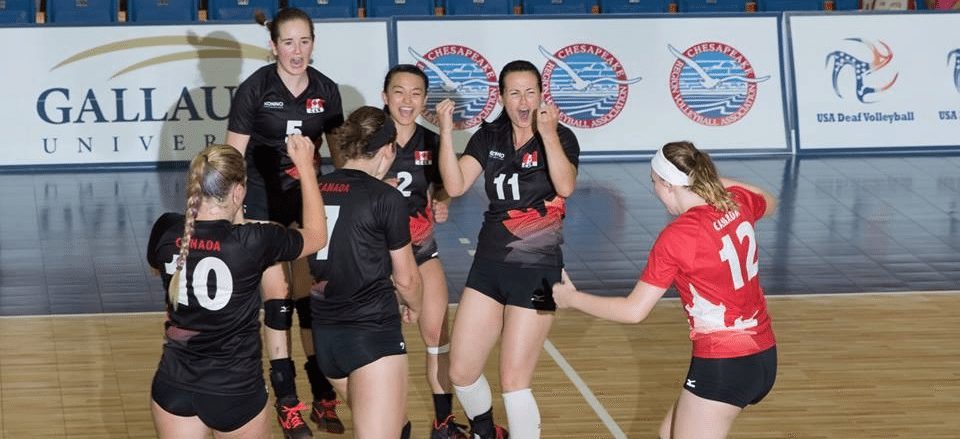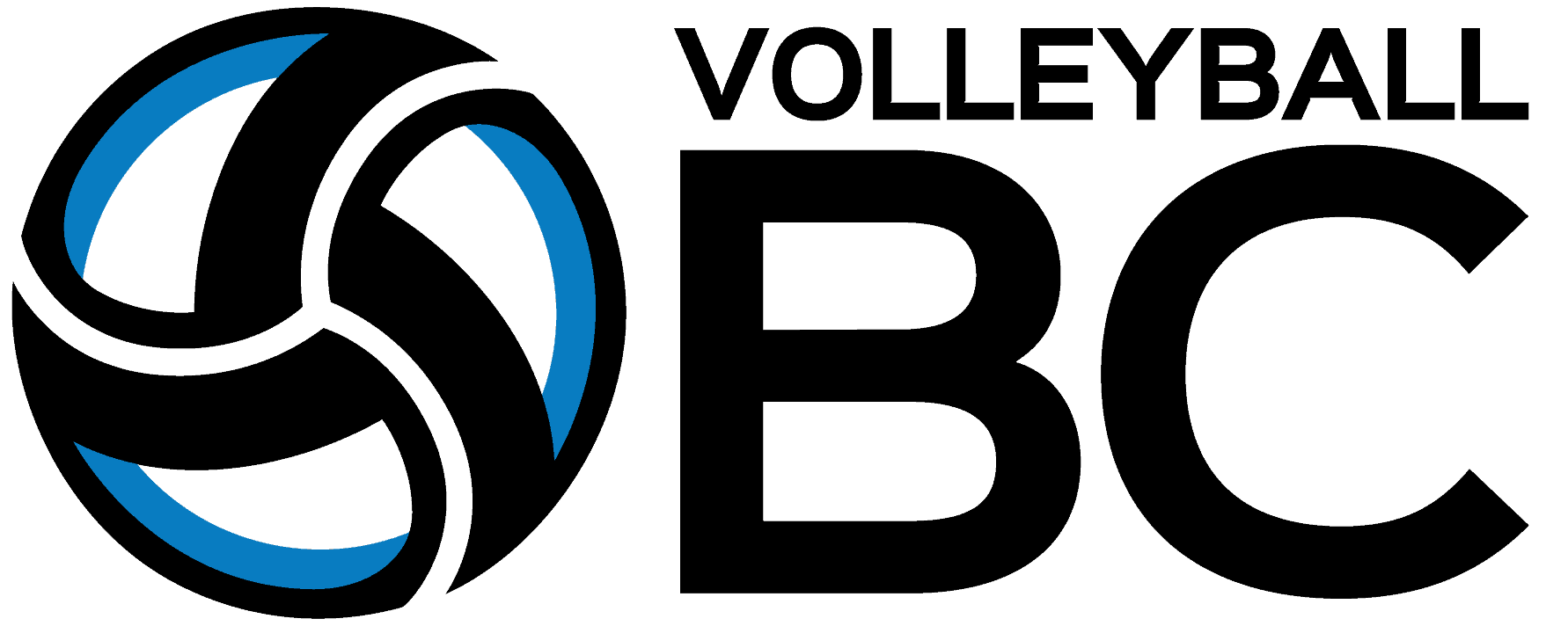
Players leave Alberta Capital in fine form, will continue to train individually for Deaflympics before next training camp in the spring of 2017.
Team Canada finishes up 2016 season with two games against Concordia University of Edmonton.

There is no greater feeling than representing your country on the international stage. The opportunity to wear the maple leaf and play for Team Canada is something that drives athletes from coast to coast. The sacrifices made, both personal and financial, is a testament to the level of commitment needed to succeed at the highest level.
But what if you didn’t even know you were eligible to suit up for Canada. Or worse yet, were eligible and not even aware that a national team program existed for the deaf and hard of hearing. A challenging dilemma and a problem that won’t be fixed until more people learn about the opportunities that exist for deaf volleyball players in our country
“That’s the biggest one”, Team Canada Women’s Deaf Volleyball head coach Derek Usman said recently. “They use the word deaf but it’s not just deaf people who can play for the National Team. Hard of hearing people have the opportunity as well. I think that’s the biggest road block right now because there are people out there with a little bit of a hearing loss and would qualify for something like this but they have absolutely no idea that this is an opportunity for them because they are really not part of the deaf community. They are in the mainstream sports activity stream and when you are in mainstream you don’t know what’s going on with Deaf Sports. That’s kind of what happened with some current players. Two girls from Alberta had no idea about the National Team program until someone gave them the information.”
This past weekend in Edmonton, Usman got his team together for one last time this year. It was an opportunity for him to reconnect with the group that qualified for the 2017 Deaflympics in Samsun, Turkey this past summer. It was also a chance for him to evaluate his game plan.
“There are great benefits to this program. Just having the opportunity to represent your country in an international competition is something that not every athlete gets to experience in life,” Usman stated proudly. “Getting to go various competitions throughout the world and compete at a high level is probably my biggest selling point. Just being a part of team Canada and wearing that maple leaf is pretty huge. And I think talking to the players on the team now, that’s a big reason why they are part of the program.”

Headlining the list of participants who will practiced for a few days and played a couple of matches against Concorida University was Team Canada captain and BC native Mari Klassen. Klassen has been playing volleyball since elementary school and suited up collegiately at Gallaudet University in Washington DC. During her time at the school, the Bison’s qualified for the NCAA playoffs for 3 years in a row. The Semiahmoo Secondary grad has been a member of the Canadian National Deaf Volleyball team since 2007. A player Usman has grown to love during her time with the program.
” I’ve seen so much maturity and progress happen with her ever since that leadership torch was based on to her,” Usman said candidly.” Especially in terms of her style of leadership and making sure the players on the team are all on board. It’s kind of taken a lot off of my shoulders to know that I have a team captain who is very committed to this program and has played internationally going on six 7 years now. She has totally matured into this leadership role and can be more so much more influential on the court. I couldn’t be happier to see how that has transpired for Mari. She’s a great person and player.”
Watch Mari’s passionate pitch to raise funds and awareness for the Canadian National Deaf Volleyball team https://www.youtube.com/watch?v=X4QVOkwAZEU
On court strategy and tactics aside, perhaps Usman’s biggest challenge right now is finding more players like his captain Klassen. Identifying talent is the easy part once you get them into a competitive environment. The trick for our Women’s Deaf Volleyball team is finding other quality competitors to battle for a roster spot on Canada’s national team. The pool of players is not as deep as Usman would like, something he hopes will change with more promotion and education about the program.
“There’s a lot of pride in doing this for your country. There’s a huge feeling of accomplishment in getting selected for this program,” Usman proclaimed boldly. “The players are getting to realize the fact that this is a big deal and that they are a big deal. We don’t have a huge group of players to choose from yet. But I am hoping more and more people will learn about things and we will have even tougher choices to make in the future when it comes to our roster.”

For those who don’t know, to be eligible for the National Deaf Volleyball Team program all athletes must be a Canadian citizen and have a hearing loss of at least 55dB in the better ear (three frequency pure tone average at 500, 1000, and 2000Hz). If that number doesn’t make sense to you or if you are unsure of your level of hearing loss, Team Canada staff would be happy to help answer any and all questions.
“Everyone now knows what needs to be done behind the scenes in order for us to be successful both at training camps and at competitions,” Usman explained. “ That’s my motivation and enthusiasm because I know that these girls are still so young and if we stay the course and buy into what we are doing, we are only going to keep getting better and better and start beating the elite teams in the world. Our potential is sky high because we’ve barely just scratched the surface. If we just keep going, add some pieces, so when push comes to shove maybe four-five years down the road we are competing and beating the big dogs and best in the world.”
The Canadian Deaf Sports Association subscribes to the theory that “sport is a source of well-being, values, and self-esteem for people who practice it.” Their goal is to support the development and practice of sports within the Deaf community, particularly the Deaf youth, in order to ensure a quality Canadian representation at the Deaflympics and Panamerican Deaf Games.
If you are interested in any aspect of the National Women’s Deaf Volleyball program (information, tryout, financial support) please feel free to contact the staff members below.
Derek Usman : Head Coach [email protected]
Mary Dyck : Team Manager [email protected]
Information on Canadian Deaf Sports: http://www.assc-cdsa.com/
